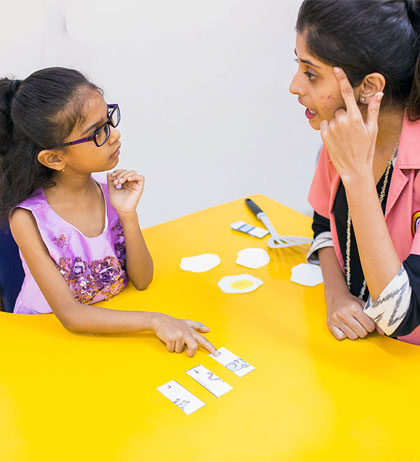Empowering Progress
The Importance of Remedial Sessions for Special Children
Special children may face a range of challenges, including learning disabilities, developmental delays, attention disorders, or other cognitive and physical impairments. It is essential to recognize that each child is unique, and their needs differ, requiring a tailored approach to education and support.

The Role of Remedial Sessions:
Personalized Learning Plans: Remedial sessions start with a thorough assessment of the child’s strengths and weaknesses. Based on this evaluation, educators and specialists develop personalized learning plans that cater to the specific needs of the child. This individualized approach ensures that each child receives the support required to overcome challenges and reach their full potential.
Skill Enhancement: Remedial sessions focus on enhancing various skills, including academic, social, emotional, and behavioral skills. Whether it’s improving reading and writing abilities, developing social communication skills, or managing emotions, these sessions provide a structured and supportive environment for skill development.
Building Confidence: Special children may often struggle with self-esteem and confidence. Remedial sessions incorporate positive reinforcement and encouragement, fostering a sense of accomplishment and pride in the child’s achievements. As they witness their progress, confidence grows, creating a positive cycle of motivation and improvement.
Inclusive Learning Environment: Remedial sessions promote inclusivity by acknowledging and celebrating diversity. Creating an inclusive learning environment helps reduce stigmas and encourages understanding among peers, fostering a sense of acceptance and belonging for special children.
Parental Involvement: The involvement of parents in the remedial process is paramount. Educators and specialists work collaboratively with parents, providing guidance on how to support their child’s learning at home. This partnership ensures a holistic approach to the child’s development, both in and outside the classroom.
